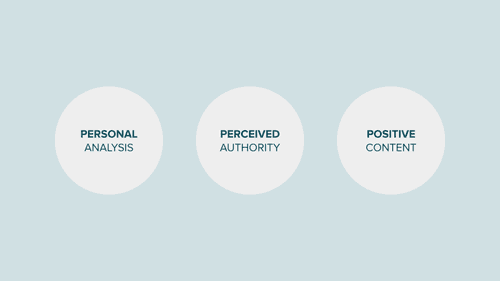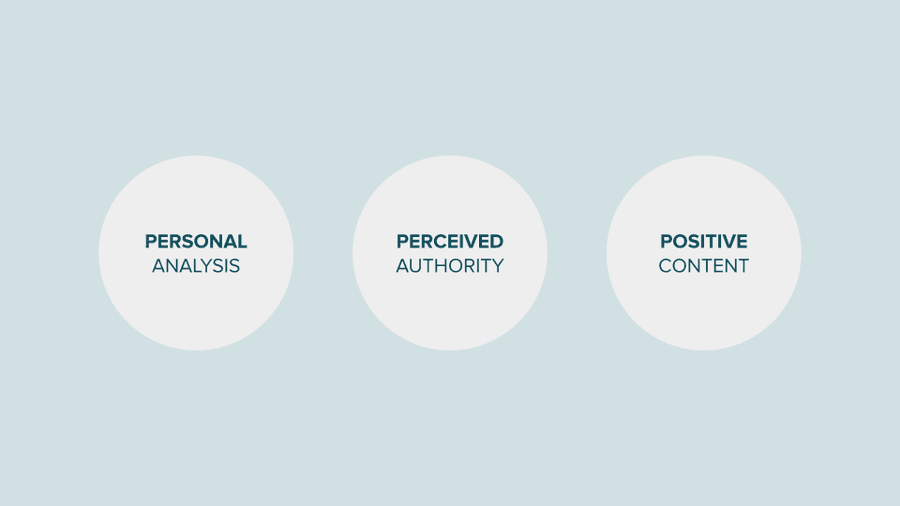Explore the World's Best Ideas
Join today and uncover 100+ curated journeys from 50+ topics. Unlock access to our mobile app with extensive features.
What's The Barnum Effect?
According to the Encyclopedia Britannica : “The Barnum Effect is the phenomenon that occurs when individuals believe that personality descriptions apply specifically to them, despite the fact that the description is actually filled with information that applies to everyone.”
52
689 reads
AKA The Forer Effect
The Barnum Effect is also sometimes called the Forer Effect, after psychologist Bertram Forer.In 1948, he administered a fake psychology test to 39 of his psychology students.
One week later, Forer gave each student a purportedly individualised results sheet, and asked each of them to rate it on how well it applied to them. This was the list of statements in the sheet:
38
173 reads
Forer‘s Psychology Test
- You have a great need for other people to like and admire you.
- You have a tendency to be critical of yourself.
- You have a great deal of unused capacity which you have not turned to your advantage.
- While you have some personality weaknesses, you are generally able to compensate for them.
- Your sexual adjustment has presented problems for you.
- Disciplined and self-controlled outside, you tend to be worrisome and insecure inside.
- Security is one of your major goals in life.
39
163 reads
Forer‘s Psychology Test (cont.)
- At times you have serious doubts as to whether you have made the right decision or not.
- You prefer a certain amount of change and variety and become dissatisfied when hemmed in by restrictions.
- You pride yourself as an independent thinker and do not accept others’ statements without proof.
- You have found it unwise to be too frank in revealing yourself to others.
- At times you are extroverted, while at other times you are introverted or reserved.
- Some of your aspirations tend to be unrealistic.
37
97 reads
So, how well did the statements apply to the students?
Forer asked his students to rate the statements in terms of how well it applied to them, on a scale of 0 for very poor accuracy to 5 for excellent accuracy.
The results? The students rated the personal accuracy of the statements as 4.3 out of 5 on average. That's impressive for a psychology test, isn't it?
34
112 reads
Not so impressive!
You have probably guessed the problem: these fake results were put together by Forer by assembling various bits of copy he had found in a newsstand astrology book, and all students received the same list of statements, rather than a custom one the students were told about.
36
125 reads
But why?
One of the most important factors when reproducing this study is to keep the statements as vague as possible, with a mix of mostly positive and some negative content.
For example, using the phrase “at times” makes for a powerful Barnum Effect.
“At times you are extroverted and sociable, while at other times you are introverted and reserved” — is it hard to agree with this statement?
34
109 reads
How to manage The Barnum Effect?
As with most cognitive biases , half of the battle is to be aware of the Barnum Effect. However, research suggests that there are three main factors that make the Barnum Effect stronger:
- If you believe that the analysis applies only to you, and thus apply your own meaning to the statements;
- If you believe in the authority of the evaluator;
- If the analysis hardly mentions any negative traits.
37
135 reads
3 tips to avoid falling prey to The Barnum Effect
- First, always be wary of vague statements that may apply to anyone. See whether it could apply to almost anyone else.
- Always question the authority of the source you are consuming. Can the author be trusted? What is their track record in offering accurate predictions?
- Finally, go through the statements and pay close attention to the balance between positive and negative statements.
36
135 reads
IDEAS CURATED BY
Digital marketing at dentsu. Invested in the symbiosis of marketing, psychology, and design. Photographer at heart.
Pranav P.'s ideas are part of this journey:
Learn more about psychology with this collection
How to overcome unwanted thoughts
How to manage intrusive thoughts
How to change your attitude towards intrusive thoughts
Related collections
Similar ideas
Read & Learn
20x Faster
without
deepstash
with
deepstash
with
deepstash
Personalized microlearning
—
100+ Learning Journeys
—
Access to 200,000+ ideas
—
Access to the mobile app
—
Unlimited idea saving
—
—
Unlimited history
—
—
Unlimited listening to ideas
—
—
Downloading & offline access
—
—
Supercharge your mind with one idea per day
Enter your email and spend 1 minute every day to learn something new.
I agree to receive email updates







